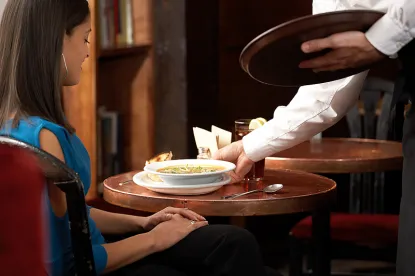On November 7, 2018, the Department of Labor (DOL) issued an opinion letter ending what had become known as the “80/20 rule” for tipped employees. The new rule, which eases restrictions on an employer’s application of the tip credit, is a reissuance of a 2009 opinion letter that had been supplanted by contrary guidance since 2011.
When an employee works in an occupation in which he or she “customarily and regularly receives more than $30 a month in tips,” the employer may pay a reduced hourly wage (the federal minimum is $2.13, but higher minimum wages apply in some states) and claim a “tip credit” to make up the difference between the reduced wage and the $7.25 hourly minimum. See 29 U.S.C. § 203(m).
Under the 2011 DOL guidance, tipped employees were entitled to a full hourly wage if ancillary or non-tipped work exceeded 20 percent of their job duties (hence the 80/20 rule). This rule triggered a surge of lawsuits by tipped employees claiming their employers required them to perform non-tipped duties to take advantage of the tip credit.
The DOL’s most recent guidance rescinds the 80/20 rule. Now, regularly assigned, non-tipped duties related to tipped services will be considered part of a tipped employee’s job, provided they are performed contemporaneously with the tipped services. For example, a restaurant may require a server to perform non-tipped duties such as folding napkins, making coffee, etc., because they are related to serving tables and performed contemporaneously. The amount of time spent performing the ancillary duties will no longer affect an employer’s ability to claim a tip credit.
The opinion letter, FLSA 2018-27, is available here: https://www.dol.gov/whd/opinion/FLSA/2018/2018_11_08_27_FLSA.pdf. To ensure proper compliance with all federal and state wage and hour laws, employers are encouraged to consult legal counsel before changing any employment practices.



 />i
/>i

